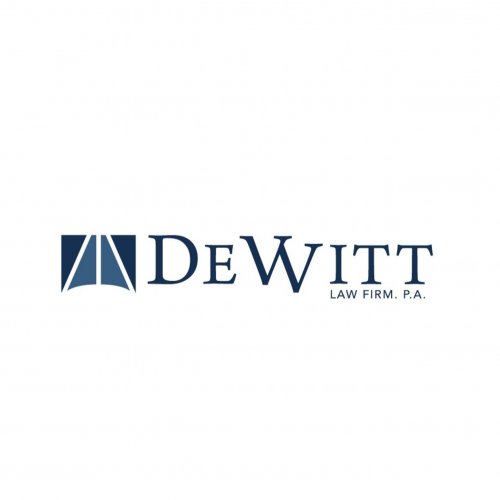Best Natural Resources Lawyers in Orlando
Share your needs with us, get contacted by law firms.
Free. Takes 2 min.
List of the best lawyers in Orlando, United States
About Natural Resources Law in Orlando, United States
Natural Resources Law in Orlando encompasses a variety of legal regulations that govern the management and use of natural resources such as water, land, minerals, forests, and wildlife. As a rapidly growing city, Orlando faces unique challenges in balancing development with the preservation and sustainable management of its natural environment. These laws aim to protect the environment while ensuring that economic growth and social needs are met.
Why You May Need a Lawyer
Individuals and businesses may need legal assistance in Natural Resources for several reasons. Common situations include:
- Disputes over land use and zoning regulations affecting resource management.
- Compliance with environmental regulations and permits for development projects.
- Negotiating mineral rights or resolving conflicts related to resource extraction.
- Addressing water rights and usage disputes.
- Resolving issues related to property rights and conservation easements.
- Participating in legislative advocacy or litigation to influence natural resource policy.
Local Laws Overview
Orlando’s local laws concerning Natural Resources primarily focus on preserving the environment while promoting sustainable development. Key aspects include:
- The Florida Water Resources Act, which regulates the use and conservation of water resources.
- Zoning and land use policies designed to protect wetlands and sensitive ecosystems.
- Endangered Species Protections, aimed at conserving habitats for wildlife.
- Permitting processes for the extraction and use of natural resources like sand and gravel.
- Sustainability initiatives enforced by the local government to reduce carbon footprint and promote renewable resources.
Frequently Asked Questions
What is the role of a Natural Resources lawyer?
A Natural Resources lawyer provides legal guidance on compliance with environmental laws, disputes over resource use, and assists in negotiations on resource-related contracts.
Do I need a permit to drill a well on my property in Orlando?
Yes, you typically need a permit to drill a well, as regulated by the Florida Water Resources Act and local county ordinances.
Can I harvest timber on my property in Orlando?
Timber harvesting may be subject to local zoning laws and state regulations. It is crucial to consult legal guidance to ensure compliance and avoid penalties.
How are water rights determined in Orlando?
Water rights in Orlando are governed by the Florida Water Resources Act, which provides a framework for the allocation and management of water resources.
What actions can I take if my neighbor is violating environmental laws?
If you suspect environmental law violations, you can report them to the Florida Department of Environmental Protection or seek advice from a Natural Resources lawyer to explore legal actions.
Is oil drilling allowed in the Orlando area?
The majority of oil drilling activities are regulated by state and federal laws, which may restrict such activities in certain areas to protect the environment.
How do I resolve a land use dispute in Orlando?
Resolving land use disputes often involves mediation, administrative hearings, or litigation. Engaging a qualified lawyer can help navigate this process effectively.
What are conservation easements, and how do they work?
Conservation easements are legal agreements that limit certain land uses to preserve its natural state. They are important tools for protecting wildlife habitats and open spaces.
Who regulates natural resource extraction in Orlando?
Resource extraction is regulated by multiple agencies, including the Florida Department of Environmental Protection and local government authorities.
What are the penalties for violating Natural Resources laws in Orlando?
Penalties can range from fines and remediation costs to legal action and can vary depending on the nature and severity of the violation.
Additional Resources
For those seeking more information or legal assistance, the following organizations and resources may be helpful:
- Florida Department of Environmental Protection
- Orlando's Environmental Protection Division
- Local legal aid societies offering assistance in environmental law
- American Bar Association - Section of Environment, Energy, and Resources
- Orlando Office of Sustainability & Resilience
- Florida Bar Association's Environmental and Land Use Law Section
Next Steps
If you need legal assistance in dealing with Natural Resources issues in Orlando, consider the following steps:
- Identify the specific legal issue or concern you are facing.
- Gather all relevant documents, permits, and correspondence related to your issue.
- Consult with a lawyer who specializes in Natural Resources law to understand your rights and obligations.
- Consider mediation or alternative dispute resolution if applicable.
- Engage in legal proceedings if necessary to protect your interests.
Lawzana helps you find the best lawyers and law firms in Orlando through a curated and pre-screened list of qualified legal professionals. Our platform offers rankings and detailed profiles of attorneys and law firms, allowing you to compare based on practice areas, including Natural Resources, experience, and client feedback.
Each profile includes a description of the firm's areas of practice, client reviews, team members and partners, year of establishment, spoken languages, office locations, contact information, social media presence, and any published articles or resources. Most firms on our platform speak English and are experienced in both local and international legal matters.
Get a quote from top-rated law firms in Orlando, United States — quickly, securely, and without unnecessary hassle.
Disclaimer:
The information provided on this page is for general informational purposes only and does not constitute legal advice. While we strive to ensure the accuracy and relevance of the content, legal information may change over time, and interpretations of the law can vary. You should always consult with a qualified legal professional for advice specific to your situation.
We disclaim all liability for actions taken or not taken based on the content of this page. If you believe any information is incorrect or outdated, please contact us, and we will review and update it where appropriate.









